Dr. Kenneth Dekleva is a former US physician-diplomat (including 5 years in Moscow), and a Senior Fellow at the George HW Bush Foundation for US-China Relations, who has extensively studied and profiled adversarial leaders for American national security and policy communities. Dr Dekleva recently sat down with the Kyiv Post to share his views based on his many years of studying and analyzing Russian President Vladimir Putin.
After the war with Ukraine started, many commentators said that Putin was “crazy” – is he? Or is he a rational actor?
I do not find, nor have I seen in over 22 years of closely studying Putin, any signs of mental instability. He is, and remains, a rational actor, even though he has at times made poor tactical and/or strategic decisions – the current war being seen by America and NATO, as well as others, as a colossal strategic failure – although a poor decision does not necessarily imply irrationality or mental illness.
Why then such strategically bad decisions – like invading Ukraine and expecting to be able to topple Kyiv in three days?
Many leaders make poor decisions, which of course can have political and diplomatic consequences. I have also not seen convincing clinical evidence of serious medical or neurological illness, or at a minimum, evidence suggestive of any cognitive impairment. These views [independently] also align with those echoed by CIA Director William Burns in his comments at last week’s Aspen Security Forum.
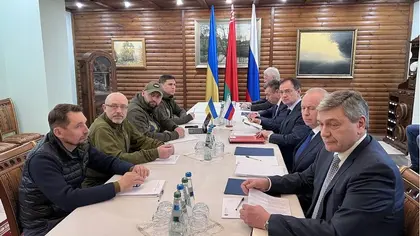
Did Peace Between Russia and Ukraine Slip Through Their Fingers in April 2022?
A lot of analysis of Putin says that he has a grandiose vision as a “modern Tsar,” or savior of Russia. How do you think Putin thinks of himself?
Putin sees himself as a leader whose desire is to restore Russia to a position of historical greatness and respect on the world stage, as befits a superpower, and as an equal to other great powers such as America and China. Restoration of Russia’s greatness (and disruption of the post-1991 world order) has been a long-standing ambition of Putin’s, but one fuelled by revanchism, grievance, and a sense that NATO betrayed Russia in understandings reached at the end of the Cold War. Putin’s ego, ambitions, and dreams are united in the service of these goals. He sees himself – correctly – as a strong, respected leader who saved Russia from its weakness and the doldrums of the 1990s, by restoring the power, glory, and grandeur of the Russian state.
Do you believe, if faced with the serious risk of losing, Putin would use nuclear weapons?
I believe that Putin would use nuclear (or other) WMD if he and his top advisers felt that Russia was under existential threat. Putin (this is true of his advisors, especially his spokesman Dmitry Peskov, a former SVR officer) has used the threat of nuclear weapon use to frighten and manipulate the West, into attempting to weaken their support of Ukraine during the war.
Why do they make these threats?
Such rhetoric has a psychological effect of creating fear and uncertainty, which aligns with both Russian WMD doctrine and Putin’s KGB training and use of psychological manipulation.
How should Western leaders deal with Putin, as a person?
Eventually, there will be a cease-fire, and hopefully, some sort of peace process between Ukraine and Russia. For all of the horrors of this war and the tragedies, as well as lives lost, in the end, Russia and Ukraine share a common history, and are neighbors. They will have to co-exist. I feel very strongly that name-calling (as has been done by several western leaders) is unhelpful and counterproductive, as Putin will be the key negotiating partner in any future diplomacy.
As a leader, how does Putin view, or enter into negotiations?
Putin can be negotiated with, as proven by the recent grain deal, his blessing of the release of Trevor Reed, and his likely blessing given to a possible Griner/Whelan-Bout swap. But he drives a tough bargain and always negotiates from strength. He reacts badly to slights and to feeling disrespected or humiliated; he abhors weakness, and mutual respect is a core belief of his. Any negotiated agreement is likely to be imperfect (ex: Dayton 1995) but will have to be one that both sides can accept and that allows both leaders – Putin and Zelensky – to save face. There are no true winners in this war.
So how will negotiations for Ukraine’s peace go?
While Putin can be negotiated with, he is a ruthless and cynical politician and negotiation partner, as shown not only in this war, but in his prior similar actions in Chechnya, Georgia, Syria, and in his election interference in America and Europe, plus the assassination of Litvinenko and others, such as Nemtsov, and the attempted assassinations of Skripal and Navalny.
Who will negotiate the peace?
Key to the resolution of the Ukraine war will be the role of a trusted mediator. The model for this is former Finnish Prime Minister Marrti Ahtissari’s mediation in Kosovo in 1999.
In Putin’s mind, must Ukraine die for Russia to be great? Can Russia have friendly relations with a neighboring, wealthier Slavic nation? Or is Putin’s decision-making per Europe and the USA differ from that of Ukraine?
Ukraine is, because of its historic links to Russia, different from the Baltics or Poland, for example. Putin is flexible and resilient when he needs to be, and when Russia’s interests require it. The huge X Factor here is Zelensky’s political future, and the 2024 US election. A strong, united America in 2024 and thereafter is key. Putin is relying upon continued American division and polarization to achieve his strategic goals. 2024 is a huge unknown and Putin sees this time as a window of strategic opportunity. In this sense, he is a man in a hurry. And this is true of our other adversaries such as China, North Korea, and Iran, who are watching closely.
Then how does a democratic Ukraine survive in a lasting peace? Is Putin psychologically strong enough to accept anything less than the extermination of Ukraine as a state and people, or will he just pause before the next war?
Context is crucial here, and what FBI hostage negotiators call tactical empathy is useful in this setting. Putin felt that the situation at hand – a weakened EU and NATO, a weak Ukraine, and a divided American polity favored going for broke. I too was surprised that he didn’t settle for a rump Ukraine, with an annexed Crimea and a Donbas as an independent entity (e.g., Abkhazia, North Ossetia). What Putin underestimated, as we all did, was the courage and heroism of President Zelensky, which has inspired Ukraine and the West. Now that Putin’s initial plan of a Russian puppet state has failed, he has attempted to destroy the idea of Ukrainian nationhood and statehood, almost a genocidal imperative on Russia’s part. I do believe that his long game – not unrealistic given Ukraine’s challenges with corruption and the existence of pro-Russian elements in the Ukrainian government- is to weaken Zelensky politically and to insure a rump Ukraine, either neutral (aka Austria) or beholden economically and politically to Russia as much as to the EU. Countering such a narrative will require exquisite diplomacy on the part of America and its EU and NATO allies. As the war winds down, this cold conflict will occur in the diplomatic and intelligence realms.
What do you imagine that Putin fears?
Putin fears a weakened Russia, and he likely fears chaos and democracy; he prefers a strong Russian state, and the control and stability that this implies. A democratic, independent, western-leaning Ukraine is seen by Putin as an existential threat.
Why?
I believe that the chaos and weakness of Russia in the 1990s had a huge impact on his psyche and beliefs, as was the case for most Russians. The ‘loss’ of the Cold War and the collapse of the USSR left that generation with a sense of shame, trauma, and humiliation. Putin’s legacy has been, and will be, to reverse this dynamic. Putin has often spoken of his admiration for strong leaders such as Charles De Gaulle, Konrad Adenauer, and Ariel Sharon. He has said that he admires Israel, for creating a country out of the desert, and for reviving a dead language. Of note, Putin sees current western leaders (e.g., Biden, Scholz, and Macron) as weak, and this narrative resonates strongly with many Russians, 80% of whom support Putin’s leadership of this war.
Where does the “tough-guy” persona of Putin come from?
It’s a combination of his Russian qualities. In a sense, Putin is truly Russian, which accounts for part of his appeal. He grew up ‘hard’ in post-war Leningrad and tempered that with his lifelong love and study of judo, which gave him discipline, and taught him to respect his training partners, teachers, and opponents. That being said, he has always been a tough competitor, and was the judo champion of Leningrad as a youth. He also studied and valued the German language, a culture which he has respected. His later KGB training honed these traits and turned Putin into a formidable adversary, both as an intelligence officer, diplomat, and politician, and as he sees himself, as “an expert in human relations.” Putin is a highly intelligent, formidable, and disruptive leader whom we should be careful not to underestimate.
How is Putin as “a guy”? If he were not President of Russia, what sort of guy would he be?
As Putin has been in power longer, the persona of a regular guy has of course worn thin, as he is a more remote, disciplined, and authoritarian leader, who has become more isolated, as noted by Hubert Seipel in his 2014 documentary, “Ich, Putin.” As the Russians say, the Tsar’s crown is heavy. That being said, videos of Putin (in 2019) practicing judo with the Russian national team, reveal a friendly, cheerful, and more open side of him, which shows his humanity and equanimity.
Current estimates say that Russia has had around 60-70,000 casualties (i.e. killed and injured combined) since invasion of Ukraine began on February 24: How do you think Putin justifies these losses?
Putin sees these casualties as justifiable for a greater cause. It is likely to only cause him concern if there is political blowback because of a larger number of deaths of Russian soldiers. His thinking in this regard is likely closer to Stalin’s famous phrase: the death of a single person is a tragedy. The death of a million is a statistic.
When you look at Putin today, and those around him, how has it changed over the past twenty-two years?
Putin is more isolated, as compared to the time of his first two terms as President (2000-2008). He had a wider variety of talented personnel as part of the various ministries and the national security council (which is chaired by Nikolai Patrushev, who is a true hard-liner). Putin valued talent. His current isolation is more problematic, and more prone to groupthink, as well as a lack of integrative flexibility and increased cognitive rigidity — traits often seen in aging (albeit healthy) authoritarian leaders.
How do you see this shift in Putin’s inner circle affecting things today?
There is, as noted above, a greater propensity towards groupthink, in that his closest advisors – most of whom, if not all, believe as he does – tell him what he wishes to hear. When things have not gone his way, he has not hesitated to dismiss top military and/or intelligence personnel, or to publicly humiliate them, as he did with SVR Director Sergei Naryshkin at that televised national security council conference prior to the start of the war.
When Putin analyzes his role in the world: How does he see himself?
Putin sees himself as a patriot and a proud Russian, as well as a former intelligence officer. It is useful to see and understand these different sides of Putin, e.g., politician, patriot, intelligence officer, martial artist, and diplomat. Unfortunately, the Ukraine war may highlight another side of Putin: that of a potential war criminal.
Putin often references different belief systems, such as Orthodoxy or “the Russian World” philosophy: Do you believe these philosophies dictate to him his actions, or does he conveniently use these philosophies to justify his actions?
This is interesting. Putin has used historical, political (Eurasia), and religious arguments to justify his policies, especially his instigation and prolongation of the Ukraine war. But he has long believed and articulated publicly that he doesn’t see Ukraine as a ‘real’ country, so I suspect that he’s using ideology, history, philosophy, and Orthodox religion to justify his thinking, rather than the other way around.
Disclaimer: Dr. Dekleva’s views are entirely his own, and do not represent any official views of the US government, US Dept. of State, or the George HW Bush Foundation for US-China Relations.
You can also highlight the text and press Ctrl + Enter


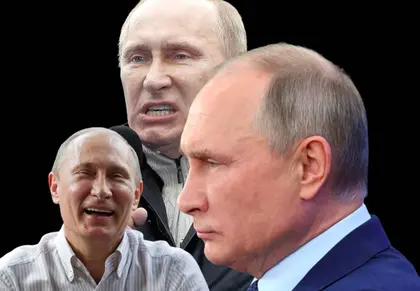
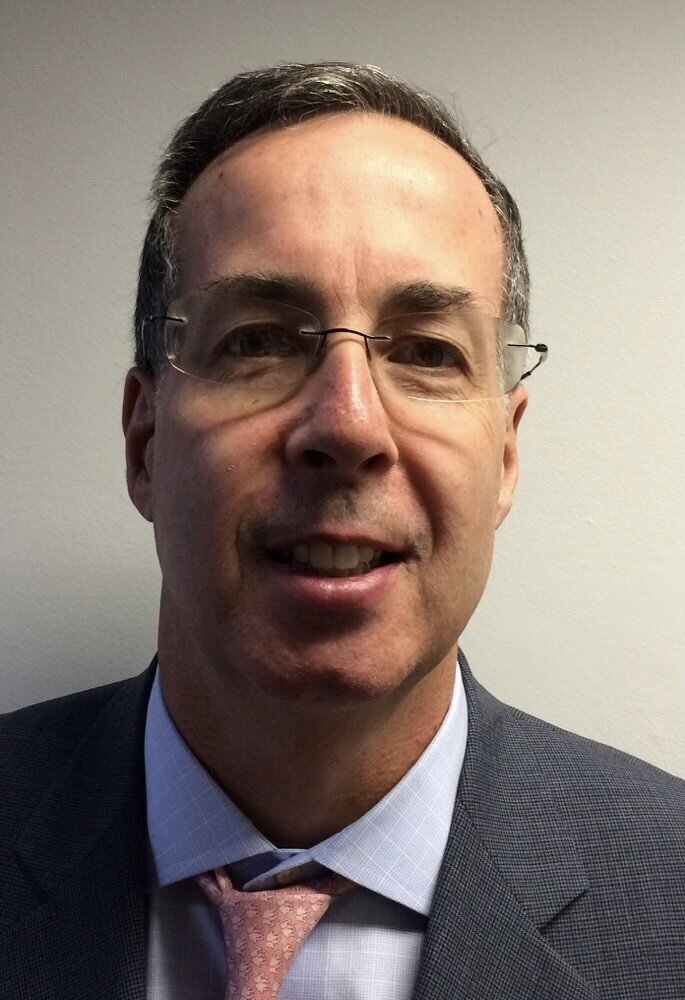
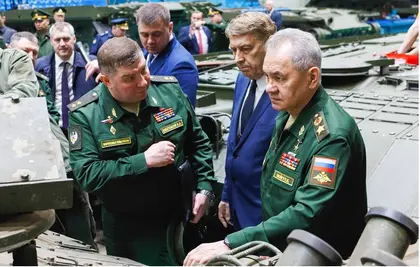
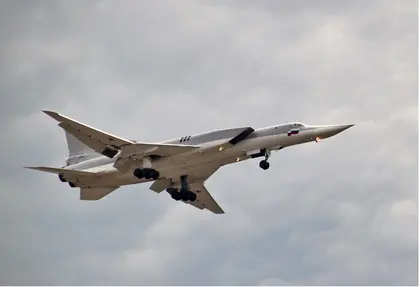
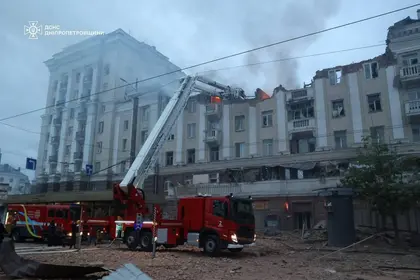
Comments (0)